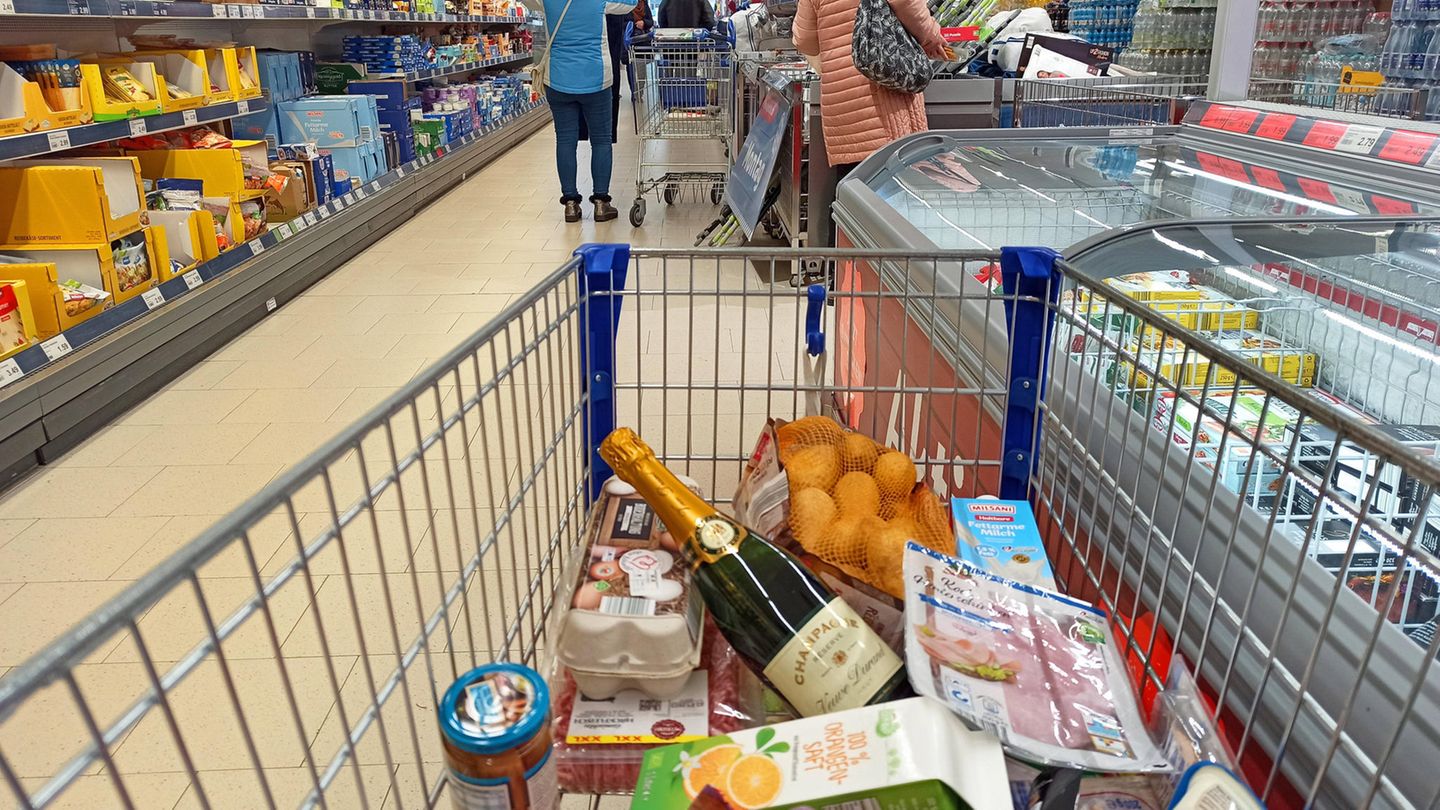In addition to energy, food in particular will become more expensive for consumers. You can now see that not only in the statistical average values, but even in the discounter prices of Aldi and Lidl.
Consumers often feel the energy price shock suddenly: in the form of a hefty back payment for heating costs or massively increased advance payments. In the case of food, the second major driver of inflation, inflation eats its way through the wallet rather insidiously. A few cents more here, a euro more expensive there – and you don’t just go shopping once a month. The bottom line is that people spend significantly more on groceries than they used to, without knowing exactly where.
Overall, food was 20.7 percent more expensive in December 2022 compared to prices a year earlier. This is the official figure of the , which reflects an average across a large number of products. This means that individual items may have become much more expensive, while others hardly or not at all.
According to statistics, edible fats and edible oils have become particularly expensive. Butter was around 40 percent more expensive than a year earlier and margarine 36 percent. Vegetable oils such as sunflower and rapeseed oil are even up 77.5 percent. Cheese and quark also cost 40 percent more. Fruit, on the other hand, has not even become 5 percent more expensive.
Aldi and Lidl: Discounter prices are also increasing
Many consumers react to the price development by changing their shopping behavior. Instead of buying higher-priced organic products, more cheap goods end up in the shopping basket again. But the discounter prices are sometimes significantly higher today, as an evaluation of the shows. The trade journal compared the discount prices of 35 specific items at Aldi and Lidl from January 2023 with those from January 2022. The result: Only three products still cost the same as a year ago, the rest have become more expensive – in percentage terms, sometimes significantly.
A year ago, for example, sugar was still available for 79 cents in discounters, today it costs 1.49 euros. Flour went up in price from 45 to 79 cents, pasta from 65 to 99 cents. The price of margarine rose within a year from 0.99 to 1.69 euros, and German branded butter from 1.65 to 1.99 euros. For natural yoghurt it went up from 0.69 to 1.09 euros, for organic whole milk from 1.09 to 1.45 euros. Today you pay one euro more for 500 grams of mixed minced meat (3.99 euros instead of 2.99 euros), for a pack of iglo fish fingers the surcharge is more than one euro (4.89 euros instead of 3.49 euros). One of the exceptions is milk chocolate, which still costs 49 cents in the discount version.
Brand manufacturers want to see more money
And the wave of price increases is far from abating. According to the Lebensmittelzeitung, in January alone Lidl increased the prices of branded products such as “Hohes C” orange juice, Langnese ice cream, Volvic water, Zott yoghurt, Müllermilch or Prinzenrolle. Supermarkets are also currently struggling with higher price demands from brand manufacturers, which are due to increased production costs want to push through higher prices.
Rewe boss Lionel Souque recently said that for the first quarter of 2023 alone he had price increases from branded companies worth one billion euros. Edeka boss Markus Mosa spoke of claims of 1.2 billion euros. The price negotiations are so tough that products from some major brand manufacturers are even disappearing from the range for the time being. Edeka, for example, was recently unable to agree on the terms of a further delivery with the US group Pepsico.
Some may find it perfectly fine that groceries are becoming more expensive – after all, the usual prices in Germany were sometimes considered immorally cheap. However, higher prices for everyday items affect lower-income households more than wealthy ones. That is why politicians are also concerned: Food Minister Cem Özdemir from the Greens would like to abolish VAT on fruit, vegetables and legumes in order to make healthy basic foods cheaper. Animal products, on the other hand, are likely to become more expensive due to the planned restructuring of agriculture towards more animal welfare and climate friendliness.
Source: Stern
Jane Stock is a technology author, who has written for 24 Hours World. She writes about the latest in technology news and trends, and is always on the lookout for new and innovative ways to improve his audience’s experience.




